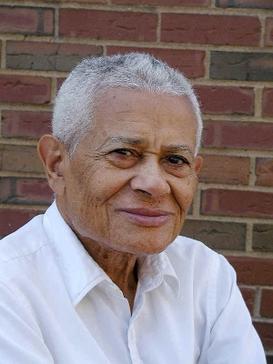William Worthy facts for kids
Quick facts for kids
William Worthy
|
|
|---|---|
 |
|
| Born | July 7, 1921 |
| Died | May 4, 2014 (aged 92) |
| Education | Bates College |
| Occupation | Journalist |
William Worthy, Jr. (July 7, 1921 – May 4, 2014) was an African-American journalist and activist. He believed strongly in his right to travel anywhere, even if the U.S. government disagreed. He was also a key figure in the civil rights movement.
Contents
William Worthy's Early Life
Growing Up in Boston
William Worthy was born in Boston, Massachusetts. His father was a successful doctor. William went to Boston Latin High School. Later, he earned a degree in sociology from Bates College in Maine in 1942. He also studied at Harvard University as a Nieman Fellow, which is a special program for journalists.
Standing Up for His Beliefs
During World War II, William Worthy had strong beliefs about not fighting. He chose not to join the military. In 1954, he spoke out against the United States getting involved in the Vietnam War. He had visited the area in 1953 and saw what was happening.
Fighting for Civil Rights
A Voice for Change
William Worthy was a dedicated civil rights activist. He was part of groups like the Fellowship of Reconciliation and the NAACP. He also joined the Fair Play for Cuba Committee. This group wanted the news in the U.S. to show a more balanced view of Cuba.
Challenging Segregation
In 1947, Worthy took part in the Journey of Reconciliation. This was an important event where civil rights leaders rode buses together. They were challenging laws that kept Black and White people separate on public transport. This action later helped inspire the famous Freedom Riders.
In the early 1960s, Worthy felt the civil rights movement needed to do more. He believed it should push harder for equal rights in housing and all parts of American life. William Worthy was a close supporter of Malcolm X. In the late 1960s, he helped organize a protest where people refused to pay rent. This was against a Catholic hospital in New York City. The hospital wanted to tear down Worthy's apartment building for a parking lot.
A Career in Journalism
Reporting on Revolutions
William Worthy worked as a reporter for the Baltimore Afro-American newspaper. He wrote for them from 1953 to 1980. He wrote a regular column and reported on big changes happening around the world. He covered revolutions in Iran, Cuba, and China. Even though he supported Malcolm X, he sometimes disagreed with other groups. For example, he criticized the Black Panthers in 1969. He felt they sometimes attacked people unfairly and that their methods could lead to trouble with the law.
Inspiring Others Through Teaching
Sharing Knowledge
In the 1970s, William Worthy became the head of the African American journalism program at Boston University. However, he was removed from this role. This happened after he criticized the university's leaders. He also supported workers at the university who wanted to form a union.
After leaving Boston University, Worthy taught journalism at UMass Boston. He even co-taught the first class in the country on "Critical Journalism." Famous thinker Noam Chomsky was a guest speaker in this class. William Worthy also taught at Howard University in the 1980s and 1990s. He held a special teaching position there called the Anneberg Chair.
For most of the 1990s until 2005, Worthy lived in Washington, D.C.. He worked as a special assistant at Howard University's School of Communications. He also served on the board of directors for the National Whistleblower Center.
In 2008, the Nieman Foundation gave Worthy a special award called the Louis M. Lyons Award. This award honors journalists who show great integrity and courage.
William Worthy's Legacy
A Lasting Impact
William Worthy passed away on May 4, 2014, in Brewster, Massachusetts. He was 92 years old and had Alzheimer's disease.
The famous psychologist Kenneth B. Clark once said something important about Worthy. He said that people like William Worthy help keep society's conscience strong. They provide the "moral fuel" to make sure people continue to care about what is right.
Works
- Our Disgrace in Indo-China. 1954.
- The Silent Slaughter: The Role Of The United States In The Indonesian Massacre. With Eric Norden, Andrew March, and Mark Lane. 1967.
- The Vanguard: A photographic essay on the Black Panthers. With Ruth-Marion Baruch and Parkle Jones. 1970.
- Pampered Dictators and Neglected Cities: The Philippine Connection. 1978.
 | John T. Biggers |
 | Thomas Blackshear |
 | Mark Bradford |
 | Beverly Buchanan |

